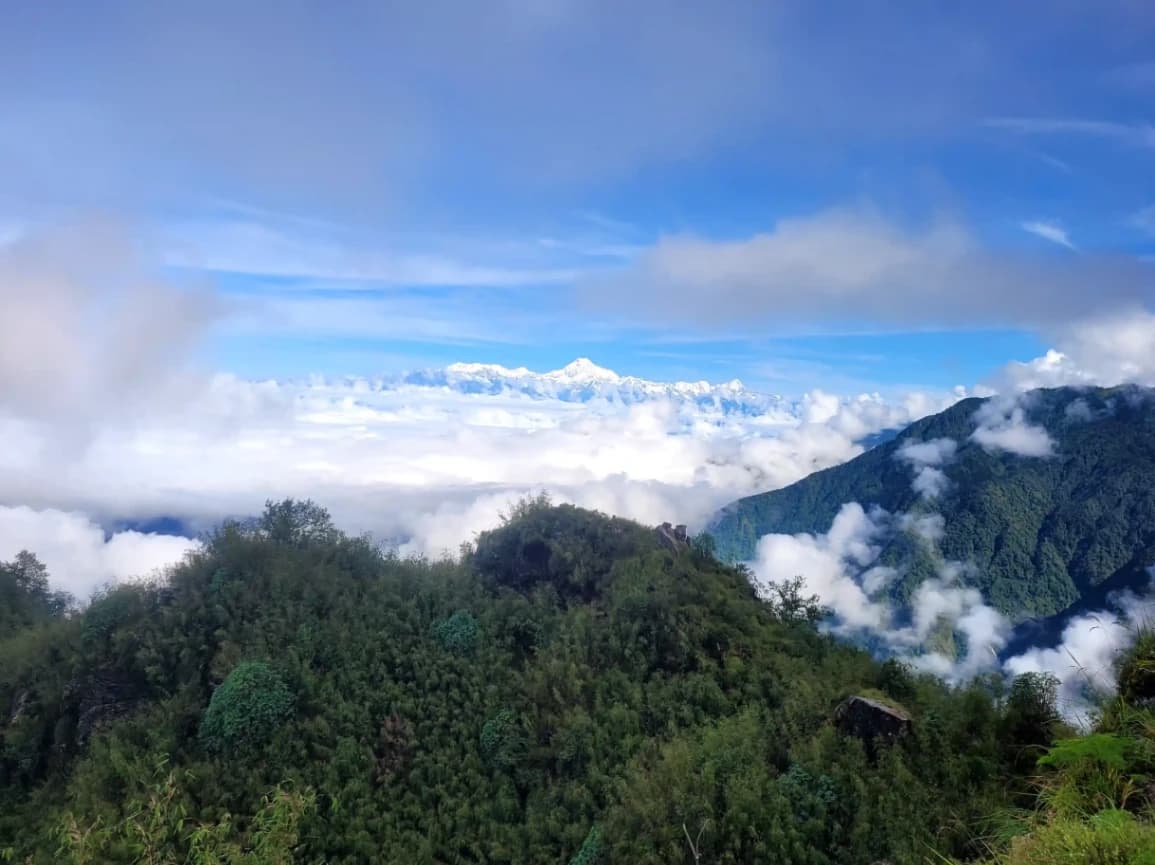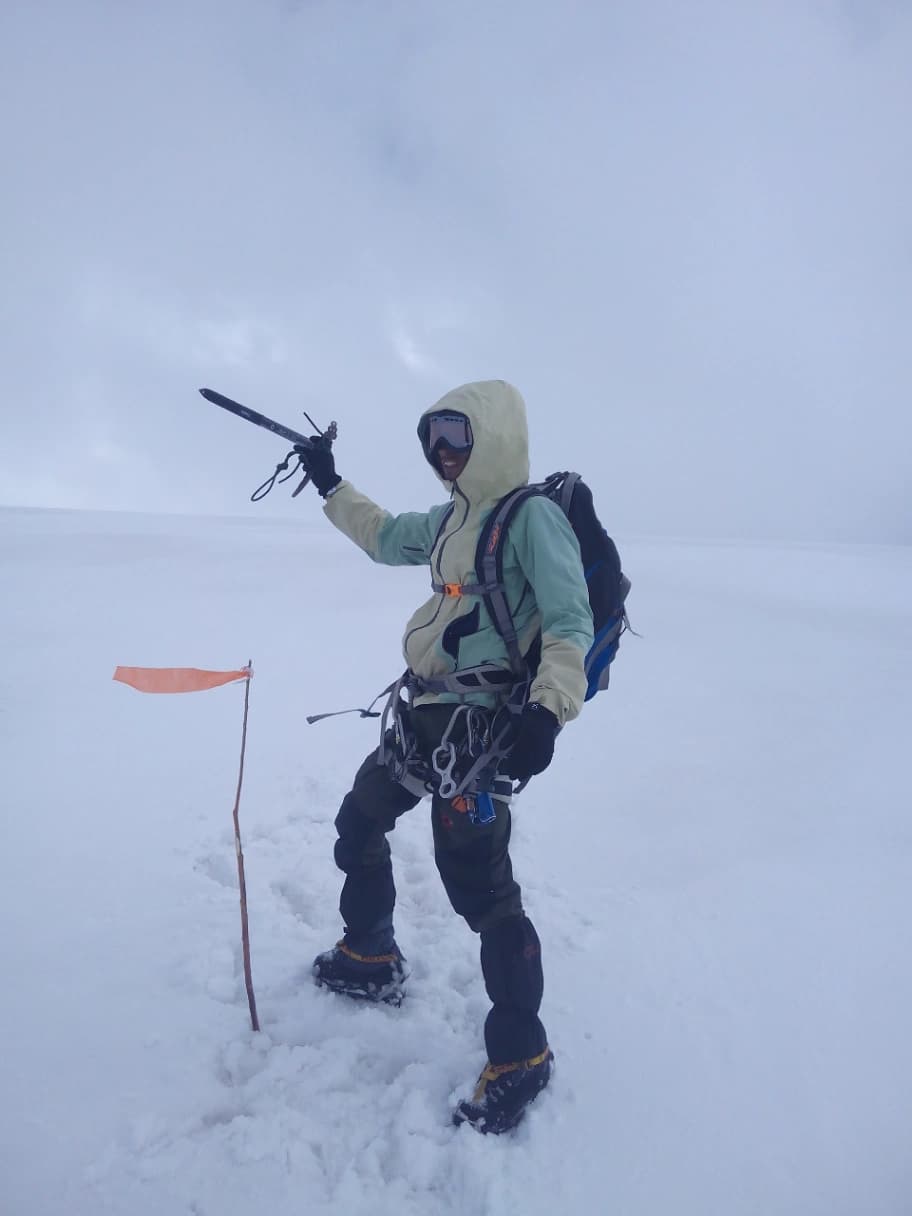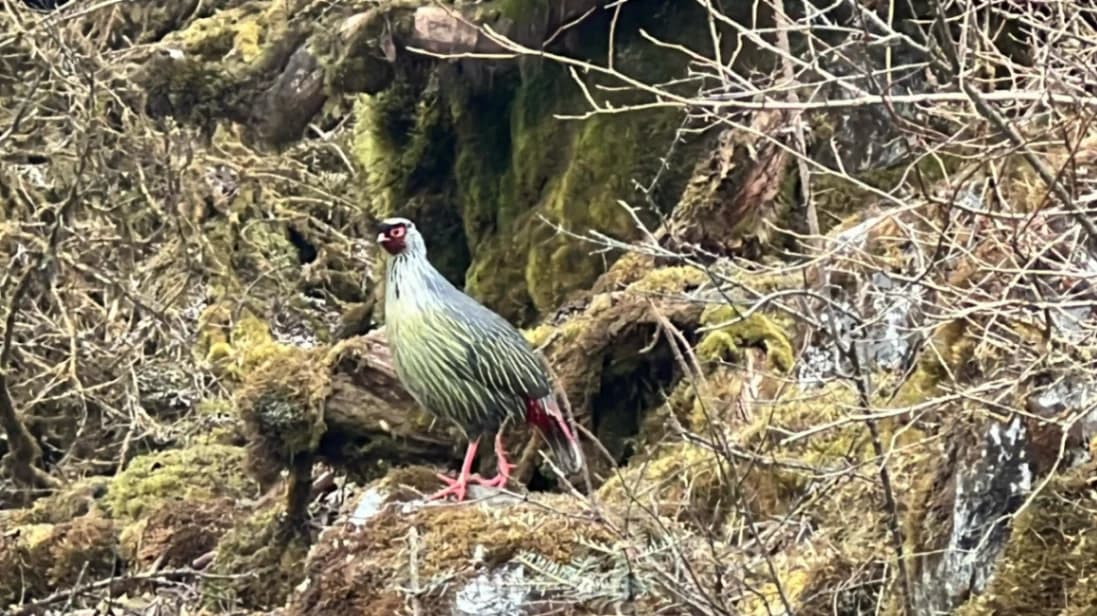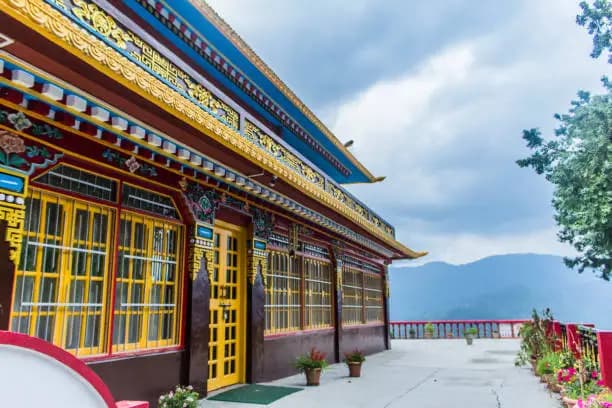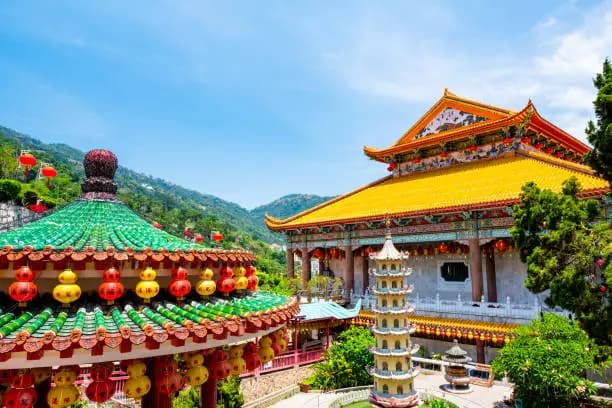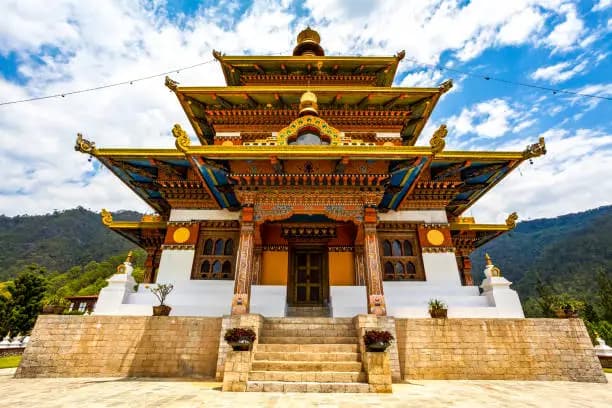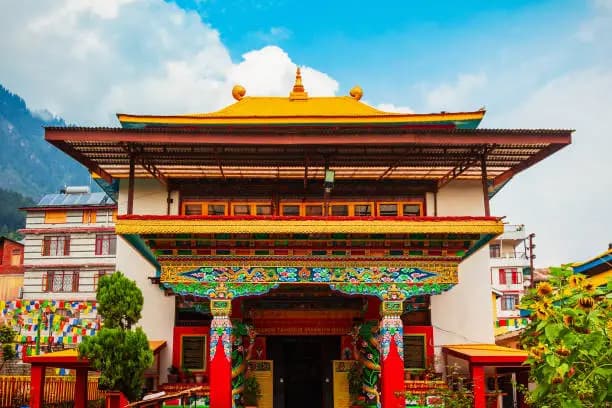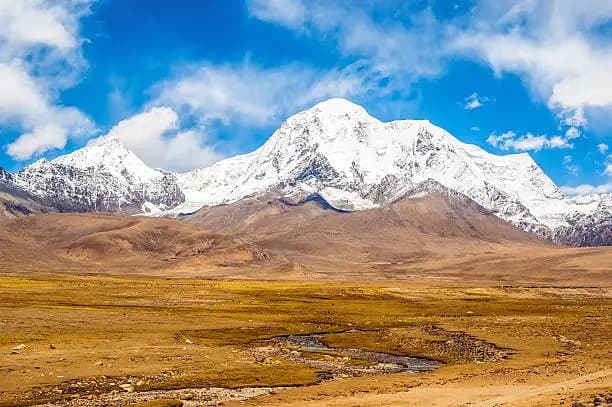Uncover the hidden charm of Sikkim, a treasure trove set deep in the Himalayas. This Travel Guide to Sikkim 2025 has been created to guide you through the region’s off-the-beaten-path destinations and organize your dream journey.
Sikkim provides a combination of stunning landscapes, rich culture, and peaceful monasteries. With the help of this guide, you’ll find out about the best sites to see, fun activities to indulge in, and advice on maximizing your sikkim holiday packages.
No matter whether you seek adventure or a relaxing sojourn, there’s something in Sikkim for all. This travel guide will be your guide in discovering the charm and beauty of this paradise in the Himalayas.
Discovering Sikkim: India’s Northeastern Gem
Sikkim, the gem of the Eastern Himalayas, beckons the wanderer with its virgin beauty and rich heritage. The northeastern Indian state overflows with wonders of nature and diversity in cultures. It awaits the world’s travelers as a must-visit destination.
Geographical Overview and Unique Features
Sikkim is mountainous with snow-covered mountains and dense forests. Some of the world’s highest mountains, the great Kanchenjunga, the third-highest mountain in the world, feature in it.
Sikkim’s Position in the Eastern Himalayas
Sikkim lies in the Eastern Himalayas and is thus a special region for climate and biodiversity. Its landscape varies from subtropical to alpine, hosting a rich diversity of plants and animals.
Biodiversity and Natural Wonders
Sikkim is renowned for its rich biodiversity, with numerous plant and animal species. The Tsomgo Lake and the Yumthang Valley are also natural phenomena, enjoyed by nature enthusiasts and adventure sports enthusiasts.
Cultural Significance and Heritage
The culture of Sikkim comprises the rich heritage of the native population, including the Lepcha, the Bhutia, and the Nepali. The cultural heritage of the state manifests through monasteries, festivals, and traditional customs.
Ethnic Diversity and Indigenous Communities
Sikkim is ethnically very diverse, and there exist numerous communities who contribute to its rich heritage. The Lepcha, who were the native people of the land, enjoy a distinctive culture maintained through customs and traditions.
Historical Timeline and Political Evolution
Sikkim’s past has been interesting, from existing as a sovereign kingdom prior to joining India in 1975. This has defined the political and social image of the state, fusing the traditional and the modern.
“Sikkim is a land of mystery, where the grandeur of the Himalayas converges with the vibrancy of its cultures to create a heaven for travelers.”
Best Time to Visit Sikkim in2025
Planning to visit Sikkim in 2025? It is imperative to know the seasons to have a great experience. Seasons in Sikkim have a significant effect on your visit.
Seasonal Breakdown and Weather Patterns
Sikkim experiences four seasons, each of them unique in beauty and activities.
Spring Season (March-May)
Spring time is a favorite time to visit Sikkim. The weather is pleasant, and the flowers come into bloom. It’s perfect for hiking and sightseeing.
Summer and Monsoon (June-September)
It’s warmer in summer, and monsoon rains may trigger landslides. It’s less crowded, if that suits your preference.
Autumn and Winter (October-February)
Autumn consists of clear weather and cozy temperatures, best suited for high altitude treks. Winters remain cold mostly in the highlands.
Festival Calendar for 2025
There are numerous festivals in Sikkim, such as Losar (Tibetan New Year) and Bumchu festival. Both of them reflect the native culture.
-
Losar: A festival observed in February or March to usher in the Tibetan New Year.
-
Bumchu: Takes place at Tashiding Monastery, most often in February or March.
Peak vs. Off-Peak Considerations
Visiting in the peak seasons of spring and autumn results in finer weather and more tourist facilities. It’s just busier, however. Off-season months are less crowded but may have reduced services.
How to Reach Sikkim: Transportation Guide
Discovering the untouched beauty of Sikkim takes knowledge of your transport means. Sikkim, being in the Himalayas, has limited connectivity. But there exist a number of means to go there.
Nearest Airports and Flight Options
The key airport of Sikkim is Bagdogra Airport, in West Bengal. It’s roughly 124 kilometers from Gangtok, the capital of Sikkim.
Pakyong Airport Services
Pakyong Airport in Sikkim has flights from cities such as Kolkata and Guwahati. It provides a direct entry to Sikkim.
Railway Connections and Train Travel
The nearest major railway station to it is the New Jalpaiguri Railway Station at Siliguri, West Bengal.
New Jalpaiguri Station Routes
New Jalpaiguri Station has connections to key cities such as Delhi, Kolkata, and Chennai. It serves as a great departure station for rail travelers.
Onward Journey to Sikkim
From New Jalpaiguri, taxis, buses, or shared jeeps go to Sikkim. The journey takes approximately 4-5 hours.
Road Routes and Bus Services
Sikkim has road connectivity to major cities. Regular buses ply from Siliguri and Darjeeling to Gangtok.
Local Transportation Within Sikkim
Within Sikkim, taxis, buses, or bike rentals are available. Getting around is quite simple.
Entry Requirements and Permits for Sikkim
Before planning your trip to Sikkim in the year 2025, it is essential that you learn something about permits. Sikkim is a sensitive border state and it has regulations to safeguard its special ecosystem and heritage.
Inner Line Permits: Process and Documentation
Indian nationals may visit the majority of Sikkim with the Inner Line Permit (ILP). Obtaining it is straightforward. It may be done locally through travel agents or over the internet.
Step-by-Step Application Process
To obtain an ILP, you’ll need to complete a form. You’ll include personal information and travel arrangements. Then, you give it to the authorities, usually via a tour operator in your local area.
Required Documents and Fees
A valid ID, passport pictures, and travel itinerary will be required. A fee is charged for the ILP.
Restricted Area Permits for Foreign Tourists
Some areas of Sikkim require foreigners to obtain a Restricted Area Permit (RAP), and it’s provided by the Sikkim Tourism Department. You will receive them from registered tour operators.
Protected Areas and Regulations
Areas such as Yumthang Valley and Nathula Pass require RAPs. They’re close to the international border. Regulations exist to safeguard these areas and to safeguard the public.
Obtaining Permits in Advance vs. On Arrival
They can obtain some of the permits when they arrive. However, one should obtain them prior to arrival, most importantly in peak seasons. This simplifies entry to restricted places.
Knowing and following Sikkim’s entry rules is key for a great trip. With the right permits, you can enjoy Sikkim’s beauty while respecting its laws.
Comprehensive Sikkim Holiday Packages for2025
Sikkim packages for 2025 suit all travelers. They have adventure, relaxation, and exposure to culture in the Himalayas.
Budget-Friendly Package Options
Budget travelers will luck out with the affordable packages of Sikkim. It has everything, including accommodation, meal plans, and tourist services, and it’s all at a very reasonable price.
5-7 Day Economical Itineraries
Our 5-7 day tours include all of Sikkim’s major tourist hotspots. You will be visiting Gangtok, Pelling, and
Group Tour Savings
Join a group tour to get accommodation and activity discounts. It reduces your trip costs.
Luxury and Premium Experiences
For the luxurious, they have high-end packages presented. They consist of top-end hotels, personal tours, and high-end sights.
Boutique Stays and Private Tours
Relish boutique stays and exclusive tours. They provide customized service and special experiences.
Helicopter Services and Exclusive Access
View Sikkim from the air with helicopter services. The services present breathtaking sights of the Himalayas.
Adventure-Focused Packages
Sikkim is perfect for adventure enthusiasts. Treks, mountaineering, and further adventure activities are a part of packages.
Trekking and Mountaineering Expeditions
They take you along the Himalayas’ challenging terrain in guided mountaineering expeditions and treks.
Multi-Sport Adventure Packages
We have multi-sport packages that merge rafting, paragliding, and biking. They create a high-adrenaline
Cultural and Heritage Tours
See Sikkim’s rich heritage with our tours. They tour monasteries, villages, and cultural sites.
Monastery Circuit Packages
Experience Sikkim’s hallowed monasteries, such as Rumtek and Pemayangtse. We make it
Village Homestay Experiences
Experience the local culture by engaging in homestay experiences. You get to stay with families and discover about their customs.
Top Destinations in Sikkim: Region by Region
Exploring Sikkim by region shows many stunning places. Sikkim’s varied landscapes and rich culture make each region unique.
East Sikkim Highlights: Gangtok and Surroundings
East Sikkim has the state capital Gangtok. It features vibrant markets and religious destinations. The region combines urban life with natural beauty.
Gangtok City Attractions
It’s renowned for MG Marg, a hub of shopping and eating. It also boasts the Enchey Monastery, a significant religious landmark.
Tsomgo Lake and Nathula Pass
Tsomgo Lake, a glacial lake, and the mountain pass of Nathula along the India-China border are the sites to visit close to Gangtok.
Banjhakri Falls and Aritar
The Banjhakri Falls is a picturesque cascade. Aritar provides serene scenery and a soothing ambience.
West Sikkim Treasures: Pelling and Beyond
West Sikkim boasts beautiful landscapes and cultural landmarks. One of the best places to visit there is Pelling, with its outstanding views of the Kanchenjunga.
Pelling and Khecheopalri Lake
Pelling is also renowned for its breathtaking view of Kanchenjunga. Locals consider the Khecheopalri Lake to be a holy lake.
Yuksom and Tashiding Monastery
Yuksom is a historic town. Tashiding Monastery is among the most revered monasteries of Sikkim.
Singshore Bridge and Dentam Valley
Singshore Bridge is the second-highest suspension bridge in Asia. Dentam Valley provides picturesque scenery and adventure sports.
North Sikkim Adventures: Lachung and Yumthang Valley
Adventure and nature enthusiasts’ paradise in the north of Sikkim is Lachung and Yumthang Valley.
Lachung and Lachen Villages
Lachung and Lachen are scenic villages. Both of them are famous for their beautiful landscapes and traditional Sikkimese lifestyle.
Yumthang Valley of Flowers
Yumthang Valley, or the Valley of Flowers, is renowned for its stunning landscapes and hot springs.
Zero Point and Gurudongmar Lake
Zero Point has been a place of adventure for adventure enthusiasts. Gurudongmar Lake is a high-altitude lake and one of the world’s highest lakes.
South Sikkim Discoveries: Namchi and Ravangla
Religious sites and natural scenery define South Sikkim. Major tourist sites include Namchi and Ravangla.
Namchi’s Religious Monuments
Namchi houses the Samdruptse Monastery and Shiva Statue, two religious landmarks of great importance.
Ravangla and Buddha Park
It has a Buddha Park, a significant religious destination with a giant Buddha statue.
Temi Tea Garden
The Temi Tea Garden is a renowned tea estate. It provides avenues into tea production and picturesque sceneries.
Accommodation Options Across Sikkim
Sikkim, the jewel of India’s northeast Himalayas, has something to fit every budget and need. Sure to appeal to travelers of all tastes, whether they desire luxury, relaxation, or adventure.
Luxury Resorts and Boutique Hotels
For a luxurious stay, there are numerous high-end resorts and boutique hotels in Sikkim. These establishments have excellent amenities such as spas, fine dining, and stunning vistas. Some of the hotels like Mayfair Gangtok and Sikkim Tsomgo Lake Resort provide a luxurious experience.
Mid-Range Hotels and Guesthouses
Budget-conscious travelers at a mid-level run the gamut in Sikkim’s midrange hotels and guesthouses. Such hotels and guesthouses have a great balance of affordability and convenience. Hotel Tibet International and Sikkim Guest House happen to be favorite destinations due to the dependability and service they provide.
Budget Stays and Homestays
For budget-conscious travelers, there are numerous affordable accommodation options in Sikkim, including homestays. Homestays in Gangtok and the surrounding areas allow exposure to the native lifestyle and ingestion of home-based meals.
Unique Accommodation Experiences
Sikkim also features special stays for particular interests.
Monastery Stays
Stay at monasteries such as Pemayangtse Monastery to immerse yourself in the Buddhist
Eco-Lodges and Glamping
Nature enthusiasts will appreciate eco-lodges and glamping. These allow you to be close to nature but remain comfortable.
Sikkim Accommodation Options
There exists something in Sikkim to suit every taste and every need. Whether it’s luxury, comfort, or adventure that you seek, it’s all available in Sikkim.
Sikkim’s Culinary Delights: Food Guide
Sikkim’s culinary scene is a rich and vibrant composition of flavors. It’s defined by the state’s rich heritage and location. The food here combines the flavors of Nepali, Tibetan, and Indian, quite distinctly displaying Sikkim’s multi-faceted heritage.
Traditional Sikkimese Dishes to Try
Savoring the food in Sikkim, you’ll come across numerous traditional foods. Among them, there are some delicacies that will tingle your taste buds. They include the following:
Momos and Thukpa Varieties
Momos, the steamed dumplings, are widely popular in Sikkim. They may be stuffed with meat or vegetables. Thukpa, hot noodle soup, is another favorite of the locals.
Gundruk, Kinema, and Fermented Specialties
Gundruk is a fermented green leafy vegetable soup. Kinema is a fermented soybean dish. Both are tasty and packed with nutrients.
Chhang and Local Beverages
A traditional rice beer called Chhang is enjoyed in Sikkim. It plays a significant role in the culture and is enjoyed on special occasions.
Best Restaurants and Eateries
Sikkim hosts numerous eating joints, each of which offers real local cuisine. Some of the best places include:
-
Restaurants serving traditional Sikkimese food in Gangtok
-
Pelling has some great local restaurants serving yummy momos and thukpa
-
Lachung cafes that offer local drinks such as chhang
Food Safety Tips and Considerations
While tasting food in Sikkim, be careful to maintain your safety.
-
Pick restaurants and diners that maintain cleanliness
-
Avoid eating raw or undercooked meat and vegetables
-
Consume bottled or filtered water
Adventure Activities and Outdoor Experiences
Sikkim is a tourist’s delight for adventure enthusiasts. It has something to offer for all adventure-seekers. The landscape of the state and its rough terrain provide perfect opportunities for numerous adventures.
Trekking Routes and Hiking Trails
Sikkim has some of the most stunning landscapes in the Himalayas and its trekking routes are very famous. Whether it’s your first time or whether you’re an experienced adventurer, there’s a trek for everyone.
Goecha La Trek
The Goecha La Trek has been a demanding yet gratifying hike. It provides breathtaking vistas of Kanchenjunga, the third-highest mountain in the world.
Dzongri Trek
The Dzongri Trek is known for its breathtaking scenery and relatively gentle terrain. It’s the best option for people who wish to enjoy the beauty of Sikkim without too much trouble.
Green Lake Trek
The Green Lake Trek is for the more adventurous type. It traverses virgin landscapes and provides stunning mountain vistas.
Singalila Ridge Trek
The Singalila Ridge Trek provides panoramic Himalayan scenery. On the trek, you get to see Everest, Lhotse, and Makalu.
River Rafting and Water Sports
The rivers of Sikkim are great for rafting and water sports. Ideal for novices and veterans alike.
Teesta River Expeditions
The Teesta River is one of the best places to go rafting. It features thrilling rapids and stunning scenery.
Rangit River Adventures
The Rangit River suits a more laidback rafting experience. It’s great for families or for people who desire a less action-packed adventure.
Paragliding and Aerial Adventures
Paragliding is a thrilling way to see Sikkim from above. It offers breathtaking views for those who dare to try.
Mountain Biking and Motorcycle Tours
Sikkim’s rugged terrain lends itself to mountain biking and motorcycling tours. Various levels of routes exist.
Cultural Immersion: Monasteries, Festivals, and Local Traditions
Immerse yourself in the rich heritage of Sikkim. Mysterious monasteries and colourful festivals lie in wait. Sikkim, in the Himalayas, combines Buddhist and native cultures to create a distinct experience.
Must-Visit Buddhist Monasteries
Sikkim has numerous monasteries. Monasteries are not only religious sites but also artistic, architectural, and cultural wonders. Some of the best monasteries to visit include:
Rumtek Monastery
This monastery plays a significant role in Sikkim. It’s renowned for its beautiful design and history.
Pemayangtse Monastery
A significant hub of Buddhist education and civilization. It’s famous for its elaborate paintings and religious artifacts.
Enchey Monastery
It’s renowned for its yearly festival. The festival includes traditional dance and rituals.
Tashiding Monastery
It’s one of the most revered monasteries in Sikkim.
Traditional Festivals and Celebrations
Festivals of Sikkim reveal its vibrant culture. Some major festivals are
Losar: Tibetan New Year
This marks the beginning of the Tibetan New Year. The festival is commemorated with dances and ceremonies.
Saga Dawa
A holy month in the Buddhist calendar. It’s commemorated with religious ceremonies.
Pang Lhabsol and Dasain
Sikkim’s cultural diversity is reflected in these festivals. They include traditional dances, music, and feasting.
Cultural Etiquette and Respectful Practices
Respect the locals’ customs on your visit to Sikkim. Be modestly dressed, take off your shoes in monasteries and in houses, and respect etiquette while celebrating festivals.
Practical Travel Tips for Sikkim in2025
Planning your Sikkim trip in 2025? You’ll need some essential travel tips. Sikkim boasts stunning scenery and rich history. To enjoy a fantastic trip, however, you should prepare in the best possible manner.
Packing Essentials for Different Seasons
Packing requirements in Sikkim also vary according to the season. For the summer and the spring months, pack light, loose-fitting clothing and waterproof gear to handle the rains. For the cold, high altitude of the winters, pack thick, layered wear. Always carry trekking shoes that are sturdy.
Health and Safety Considerations
Health and safety come first in Sikkim, owing to the high altitudes. You will want to consider preventing altitude sickness and being aware of where to seek medical attention.
Altitude Sickness Prevention
Altitude sickness in Sikkim is a significant issue. To mitigate it, gradually acclimatize to the altitude. Plenty of water should be consumed and strenuous activities should be avoided in the beginning.
Medical Facilities and Emergency Services
Sikkim’s healthcare facilities have improved, with better-equipped facilities in Gangtok and in the larger towns. For more serious conditions, however, you may need to go to a larger city. Travel insurance including emergency evacuations should be available to you.
“It takes meticulous planning and knowledge of potential health concerns to travel to high-altitude destinations such as Sikkim.” – Dr. R.K. Singh, Travel Medicine Specialist
Communication and Internet Connectivity
Sikkim has improved in communication and the internet, but there are areas left uncovered. In major towns such as Gangtok, the internet is fine, but inform your family of any potential issues in the rural areas.
Money Matters: Currency and ATMs
The currency of India is the Indian Rupee. Most major towns have ATMs, but stock rural areas with cash. Inform your bank of your travel plans to avoid any inconvenience.
Getting ready and in the know will make your 2025 journey to Sikkim all the better. Whether seeking adventure, history, or a relaxing respite, Sikkim has it all to offer.
Sustainable Tourism Practices in Sikkim
Sikkim takes the crown when it comes to ecotourism, uniting environmental stewardship with strengthening the community. This Indian northeast region serves as a beacon of sustainable travel. This is where responsibility and tourism come together.
Eco-Friendly Travel Initiatives
Sikkim is going all out for green tourism. It’s striving to cut down its environmental footprint. This comprises a huge campaign for organic agriculture and strict waste regulations.
Sikkim’s Organic Farming Movement
Sikkim becomes the first Indian territory to go completely organic. This transition increases the sustainability of agriculture and native diversity. This is a major step for the state.
Plastic Ban and Waste Management
Sikkim banned the use of plastic products in order to reduce waste. It also established efficient waste mechanisms. These measures assist in controlling tourism and domestic waste.
Supporting Local Communities
Sikkim gives priority to the local communities in its tourism policy. It practices community tourism and responsible tourism. By doing so, the benefits of tourism are distributed equitably.
Community-Based Tourism Projects
Sikkim community tourism empowers locals to have a voice and economic opportunities. It maintains the region’s nature and culture safe. This benefits all.
Responsible Photography and Cultural Sensitivity
Tourists are requested to take pictures responsibly. Be considerate of the locals and the customs. This includes being mindful near religious sites and respecting people’s privacies.
Conclusion: Planning Your Perfect Sikkim Adventure
Sikkim is a heaven on earth for travelers with breathtaking landscapes and rich heritage. This Indian state in the northeastern region has something to offer to all sorts of travelers. Whether it’s a laid-back vacation or a wild adventure, Sikkim awaits.
Searching for the best trip? Consider the Sikkim packages. We have packages that suit different interests and means. With this travel guide, planning your dream vacation in Sikkim becomes possible while enjoying the landscapes and cultures.
Don’t forget to treat Sikkim and its people with respect before leaving. Sustainable tourism ensures that Sikkim remains beautiful in the future. Its beautiful reception and breathtaking sights will remain in your mind forever.
FAQ
What is the best time to visit Sikkim in 2025?
The best time to visit Sikkim is in spring (March to May) and autumn (September to November). The weather is nice and clear, perfect for exploring and outdoor fun.
Do I need a permit to visit Sikkim?
Yes, you need an Inner Line Permit for Sikkim if you’re an Indian citizen. You can get it online or at designated centers. Foreigners need a Restricted Area Permit, which requires more paperwork and planning.
How do I reach Sikkim?
The closest airport is Bagdogra Airport in Siliguri, which links to big Indian cities. You can also take a train to New Jalpaiguri Station and then drive. Buses and taxis from Siliguri and nearby towns are also available.
What are the must-visit destinations in Sikkim?
Must-see places include Gangtok, Tsomgo Lake, Nathula Pass, Pelling, Yuksom, Lachung, Yumthang Valley, Namchi, and Ravangla. Each spot offers something special, from beautiful views to cultural sites.
What kind of accommodation options are available in Sikkim?
Sikkim has many places to stay, from luxury resorts to budget guesthouses. You can also find homestays, monastery stays, and eco-lodges, fitting all budgets and preferences.
What are the popular adventure activities in Sikkim?
Sikkim is great for adventure lovers. You can trek on routes like Goecha La and Dzongri, raft on Teesta and Rangit rivers, paraglide, and bike on trails.
What are the traditional Sikkimese dishes I should try?
Try momos, thukpa, gundruk soup, kinema, and local drinks like chhang. These are authentic Sikkimese flavors you shouldn’t miss.
How can I contribute to sustainable tourism in Sikkim?
Help local communities by choosing community-based tourism. Respect local ways, use less plastic, and pick eco-friendly places and tours. This helps reduce your impact.
What are the essential items to pack for a trip to Sikkim?
Bring layers for changing weather, comfy shoes, rain gear, sunscreen, a first-aid kit, and any needed meds. Check the weather before you go to be ready.
Are there any health and safety considerations for traveling to Sikkim?
Watch out for altitude sickness in high places. Stay hydrated, get used to the altitude slowly, and see a doctor if you have health issues. Sikkim has good medical care, but being prepared is best.






